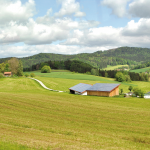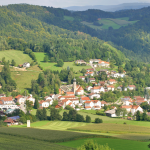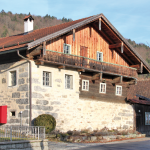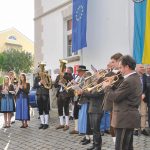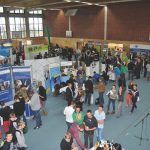Ringelai, Bavaria, Germany
Ringelai is situated in the Bavarian Forest, about 30 km from the Czech border, 40 km from Passau and 200 km from Munich. The municipality has about 2,000 inhabitants – with a slightly decreasing tendency – and consists of about ten villages. The municipality has a special landscape, as Bavaria’s most beautiful geotopes are located there. Ringelai has about 200 guest beds and the number of overnight stays has grown notably over the last few years.
Ringelai has over 150 businesses in various fields, about one sixth are of agricultural kind. It also has many rich and diverse associations. Overall, these associations have 2,550 members. 235 inhabitants are employed in the social field, 150 of which are women. 610 inhabitants are employed outside of Ringelai, while about 150 people from outside of town have a job in the municipality.
The municipality’s development plan started in 1990 in five villages, in 1996 a holistic development in all villages was initiated. The basis of the active participation of the inhabitants are work circles about various topics, during which concepts and implementation projects are worked out.
The main aim is the networking of the activities in the individ-ual villages. The settlement activities in connection to landscape protection and the usage of resources are also of great importance. Also important are future questions such as the energy turnaround and the demographic change. Additionally, there are projects that concentrate on strengthening the tourism of local enterprises.
An essential recognition within all these areas of village development is that many of these tasks can be fulfilled only on an inter-municipal level. This recognition lead to the foundation of the „Ilzer country“ in 2005, an inter-municipal group of nine towns and municipalities. Ringelai takes the role of the motivating power and with it an exemplary function within this group. Currently inter-municipal urban land-use planning and surface management are a major topic. Also youth work and the construction and expansion of tourism infrastructures are areas which are managed in this group. The main aspect is the subsidiarity principle: According to the kind of challenge it is faced on either a village level, a municipality level or an inter-municipal level.
Through the municipal development of the last twenty years, a high number of improvements concerning the social and technological infrastructure were achieved. Successful projects in the fields of tourism and energy were implemented as well. Also remarkable are the construction of the Celtic village Gabreta, the witch museum, the herb garden and an educational herb garden.
„Project highlights“ can also be found in ressource protection, in the preservation of space, in the expansion of local supply and in the fields of energy and mobility.
The village renewal in Ringelai is generally exemplary as it points out how villages can achieve sustainability step by step, inside and out through smart orientation.
Evaluated: 2014

